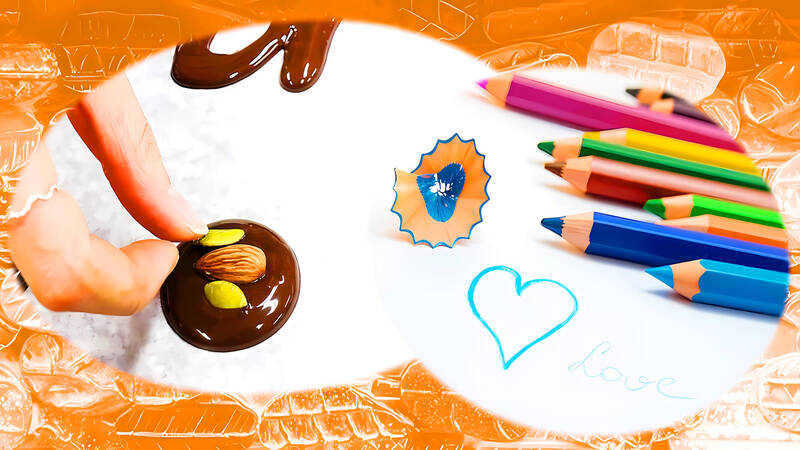對話 Dialogue
清清:華華,你知不知道台灣有很多觀光工廠都很有意思?
Qīngqing: Huáhua, nǐ zhī bù zhīdào Táiwān yǒu hěnduō guānguāng gōngchǎng dōu hěn yǒuyìsi?

Photo: Piqsels / 照片:Piqsels 提供
華華:我常在社群媒體看到一些人分享去觀光工廠玩的照片,有的的確非常漂亮。
Huáhua: Wǒ cháng zài shèqún méitǐ kàndào yìxiē rén fēnxiǎng qù guānguāng gōngchǎng wán de zhàopiàn, yǒude díquè fēicháng piàoliàng.
清清:不只是漂亮,顧名思義,觀光工廠就是又能觀光,又是工廠。
Qīngqing: Bù zhǐshì piàoliàng, gùmíng sīyì, guānguāng gōngchǎng jiùshì yòu néng guānguāng, yòu shì gōngchǎng.
華華:我上次去了一家製造鉛筆的,了解到鉛筆是怎麼做出來的,裡面還有不少歷史照片和老物件,非常特別。
Huáhua: Wǒ shàngcì qùle yì jiā zhìzào qiānbǐ de, liǎojiědào qiānbǐ shì zěnme zuò chūlái de, lǐmiàn háiyǒu bùshǎo lìshǐ zhàopiàn hé lǎo wùjiàn, fēicháng tèbié
清清:那你有沒有報手作課程呢?
Qīngqing: Nà nǐ yǒu méiyǒu bào shǒuzuò kèchéng ne?
華華:有啊!我們在鉛筆上創作,做出屬於自己獨一無二的。
Huáhua: Yǒu a! Wǒmen zài qiānbǐ shàng chuàngzuò, zuò chū shǔyú zìjǐ dúyī wú’èr de.
清清:這就是觀光工廠吸引人的地方,大人小孩都會覺得好玩。
Qīngqing: Zhè jiùshì guānguāng gōngchǎng xīyǐn rén de dìfāng, dàrén xiǎohái dōu huì juéde hǎowán..
華華:既然如此,改天就找一家,一塊兒去走走吧!
Huáhua: Jìrán rúcǐ, gǎitiān jiù zhǎo yì jiā, yíkuàr qù zǒuzǒu ba!
翻譯 Translation
Qingqing: Huahua, did you know that there are many interesting tourist factories in Taiwan?
Huahua: I often see people sharing photos of their visits to tourist factories on social media, and some of them are indeed very beautiful.
Qingqing: They’re not just beautiful; as the name suggests, tourist factories are places where you can both sightsee and see how things are made.
Huahua: I visited one that makes pencils last time and learned how pencils are made. They even had many historical photos and old items inside, which was very interesting.
Qingqing: Did you sign up for any hands-on workshops?
Huahua: Yes, we created designs on the pencils to make them uniquely ours.
Qingqing: That’s what makes tourist factories appealing—they’re fun for both adults and kids.
Huahua: In that case, let’s pick one to visit together another day.
生詞 Vocabulary
1. 觀光工廠 (guānguāng gōngchǎng) tourist factory
2. 社群媒體 (shèqún méitǐ) social media
3. 顧名思義 (gùmíng sīyì) [idiom] as the name implies
4. 製造 (zhìzào) to manufacture
5. 鉛筆 (qiānbǐ) pencil
6. 物件 (wùjiàn) object, item, thing
7. 手作 (shǒuzuò) handmade, DIY
8. 獨一無二 (dúyī wú’èr) [idiom] unique
教材音檔 Audio Files
國立清華大學華語中心提供
By National Tsing Hua University Chinese Language Center:

In an effort to fight phone scams, British mobile phone company O2 has introduced Daisy, an AI designed to engage phone con artists in time-wasting conversations. Daisy is portrayed as a kindly British granny, exploiting scammers’ tendency to target the elderly. Her voice, based on a real grandmother’s for authenticity, adds to her credibility in the role. “O2” has distributed several dedicated phone numbers online to direct scammers to Daisy instead of actual customers. When Daisy receives a call, she translates the scammers’ spoken words into text and then responds to them accordingly through a text-to-speech system. Remarkably, Daisy

Bilingual Story is a fictionalized account. 雙語故事部分內容純屬虛構。 Emma had reviewed 41 resumes that morning. While the ATS screened out 288 unqualified, she screened for AI slop. She could spot it a mile away. She muttered AI buzzwords like curses under her breath. “Team player.” “Results-driven.” “Stakeholder alignment.” “Leveraging core competencies.” Each resume reeked of AI modeling: a cemetery of cliches, tombstones of personality. AI wasn’t just changing hiring. It was draining the humanity from it. Then she found it: a plain PDF cover letter. No template. No design flourishes. The first line read: “I once tried to automate my

Every May 1, Hawaii comes alive with Lei Day, a festival celebrating the rich culture and spirit of the islands. Initiated in 1927 by the poet Don Blanding, Lei Day began as a tribute to the Hawaiian custom of making and wearing leis. The idea was quickly adopted and officially recognized as a holiday in 1929, and leis have since become a symbol of local pride and cultural preservation. In Hawaiian culture, leis are more than decorative garlands made from flowers, shells or feathers. For Hawaiians, giving a lei is as natural as saying “aloha.” It shows love and

1. 他走出門,左右看一下,就過了馬路。 ˇ He walked outside, looked left and right, and crossed the road. χ He walked outside and looked left and right, crossed the road. 註︰並列連接詞 and 在這句中連接三個述語。一般的結構是 x, y, and z。x and y and z 是加強語氣的結構,x and y, z 則不可以。 2. 他們知道自己的弱點以及如何趕上其他競爭者。 ˇ They saw where their weak points lay and how they could catch up with the other competitors. χ They saw where their weak points lay and how to catch up with the other competitors. 註:and 一般連接同等成分,結構相等的單詞、片語或子句。誤句中 and 的前面是子句,後面是不定詞片語,不能用 and 連接,必須把不定詞片語改為子句,and 前後的結構才相等。 3. 她坐上計程車,直接到機場。 ˇ She took a cab, which took her straight to the airport. ˇ She took a cab and it took her straight